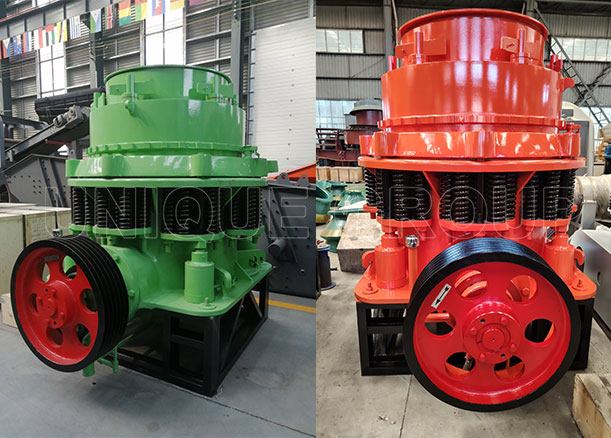How to Choose the Right Cone Crusher for Your Needs
Selecting the right
cone crusher is crucial for optimizing productivity, reducing operational costs, and ensuring long-term reliability in mining, quarrying, and aggregate production. With various models, configurations, and manufacturers available, making an informed decision requires careful consideration of multiple factors. This guide provides a comprehensive overview of the key aspects to evaluate when purchasing a cone crusher.

Understand Your Crushing Requirements
Before choosing a cone crusher, you must assess your specific crushing needs:
- Material Characteristics: Determine the hardness, abrasiveness, moisture content, and size of the raw material. Harder materials (e.g., granite, basalt) require robust crushers with high wear resistance, while softer materials (e.g., limestone) may allow for more flexibility in machine selection.
- Feed Size & Output Requirements: The maximum feed size and desired product size influence the crusher’s chamber design and crushing capacity. Fine, medium, or coarse crushing needs dictate whether you need a secondary, tertiary, or quaternary crusher.
- Production Capacity: Estimate your required throughput (tons per hour) to match the crusher’s capabilities. Overestimating may lead to unnecessary costs, while underestimating can cause bottlenecks.
Types of Cone Crushers
Cone crushers are categorized based on their design and application:
- Spring Cone Crusher: Traditional design with a spring release system, suitable for secondary crushing. Cost-effective but less efficient than modern alternatives.
- Hydraulic Cone Crusher: Uses hydraulic adjustment and overload protection, offering better control over particle size and higher efficiency. Ideal for medium to hard materials.
- Compound Cone Crusher: Combines spring and hydraulic systems, balancing cost and performance for mid-range applications.
- Single-Cylinder & Multi-Cylinder Hydraulic Cone Crushers:
- Single-cylindermodels are compact and suitable for fine crushing.
- Multi-cylinderversions provide higher capacity and stability for large-scale operations.
Key Features to Evaluate
When comparing different
cone crushers, focus on the following technical aspects:
- Crushing Chamber Design: Different liner profiles (standard, short-head, fine, etc.) affect output gradation. A well-matched chamber ensures optimal performance.
- Eccentric Speed & Stroke: Higher speeds produce finer output, while larger strokes enhance throughput for coarser materials.
- Automation & Control Systems: Modern crushers feature advanced automation (e.g., ASRi by Sandvik, IC by Metso) for real-time adjustments, improving efficiency and reducing downtime.
- Wear Parts & Maintenance: Check the availability and durability of wear components (mantles, concaves, bushings). Easy access for maintenance reduces operational disruptions.
Manufacturer Reputation & Support
Choosing a reliable manufacturer ensures long-term performance and support:
- Brand Reputation: Leading brands (e.g., Metso, Sandvik, Terex, Symons) offer proven reliability but may come at a premium.
- After-Sales Service: Verify the availability of spare parts, technical support, and warranty coverage. Local service networks minimize downtime.
- Customization Options: Some manufacturers provide tailored solutions for specific applications, such as mobile cone crushers for portable operations.
Cost Considerations & ROI Analysis
While upfront cost is important, consider the total cost of ownership (TCO):
- Initial Investment vs. Long-Term Savings: A cheaper model may require frequent repairs, whereas a high-quality crusher offers better longevity.
- Energy Efficiency: Hydraulic and hybrid models reduce power consumption, lowering operational expenses.
- Resale Value: Reputable brands retain higher resale value, benefiting future upgrades.
Conclusion
Selecting the right
cone crusher involves balancing technical specifications, operational needs, and budget constraints. By thoroughly evaluating material properties, crusher types, key features, manufacturer support, and cost factors, you can make an informed decision that maximizes productivity and minimizes downtime. Always consult with industry experts and request on-site demonstrations to ensure the chosen crusher meets your expectations.
